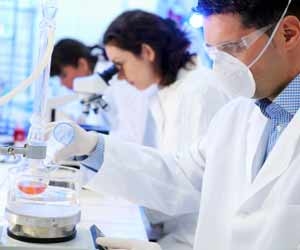Chemical Technician Job Overview
Once crude oil has been extracted and transported, it must then be processed. Since not all hydrocarbons can be converted into gasoline, it is the job of the chemical technicians to experiment and create new ideas, or to assist in the production of existing products. Chemical Technicians are an important part of the petroleum industry’s downstream sector. They assist scientists in chemical and physical lab tests in order to make both qualitative and quantitative analyses of solids, liquids and gases. This analysis is essential for the research and development of new products or new processes as well as improved quality control. Within research and development, chemical technicians may conduct a wide range of laboratory procedures including collecting data and analyzing samples of pollutants to determine how to better maintain environmental standards. Simply put, chemical technicians examine raw material and try to determine new applications for that material.

History and Types
The chemical technician position evolved around the 1970s, and was the result of technical training that people were receiving for new technology at the time. There are two types of chemical technicians: process technicians and research or laboratory technicians. Research technicians work mostly in the experimental laboratories while process technicians are more involved in manufacturing. Process technicians tend to make more money than their research colleagues, but research technicians get to be more creative with experiments.
Skills
The chemical technicians’ required skill-set is very diverse, but computer skills and analytical thinking are essential skills to possess. They must be proficient with word processing software such as Microsoft Word and Excel in order to communicate their reports to superiors, colleagues and subordinates. They must also apply technical aptitude in order to safely operate Bunsen burners, Meker burners, various flasks, diffusion pumps, volume displacement pumps and water aspirators. High regard for the scientific process and understanding of how to apply scientific rules is also necessary in order to solve problems. Strong skills in logic and mathematics are also necessary to identify strengths and weaknesses of alternative solutions. One of the biggest assets for a chemical technician is curiosity.
Specific tasks for this position include conducting physical lab tests, compiling and interpreting results of tests, preparing chemical solutions for products and ordering inventory in order to maintain an appropriate supply.
Background
Satisfactory knowledge of chemical composition, chemical structure and chemical properties of given substances is essential. The chemical technician must also know and understand chemical processes and transformations including danger signs, production techniques and proper disposal methods.
Pay
Because of the technical nature of this position, experience and education are required to sufficiently perform this job. The appropriate educational background includes vocational training, relevant job site experience or an associate’s degree. In some cases, a bachelor’s degree is required. According to the U.S. Department of labor, over 60,000 people are employed as chemical technicians. By 2020 many more thousands will be needed to fill upcoming vacancies. Chemical Technicians earn around $20 per hour (median), which translates to around $43,000 on an annual basis.

